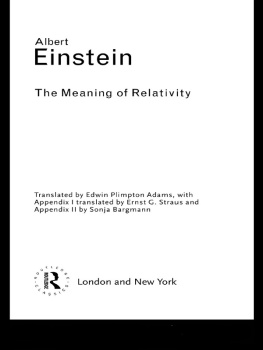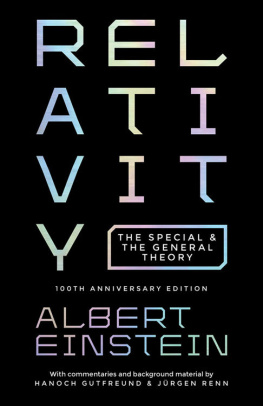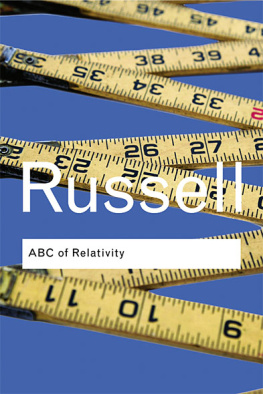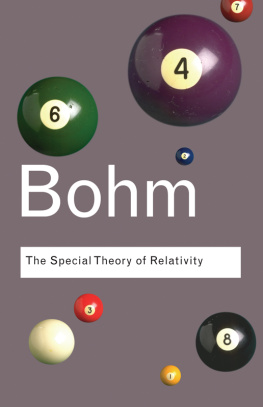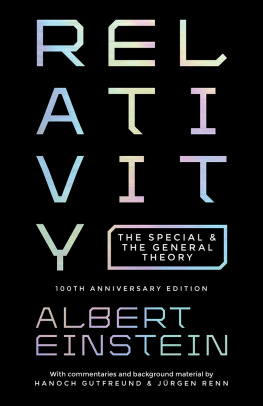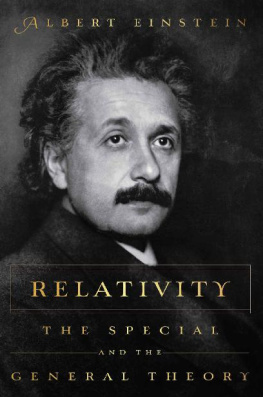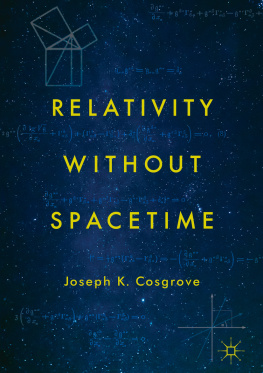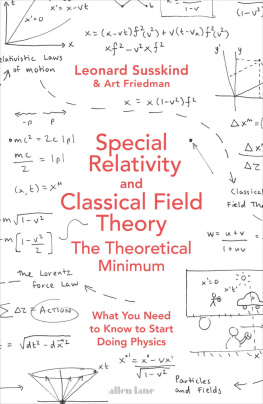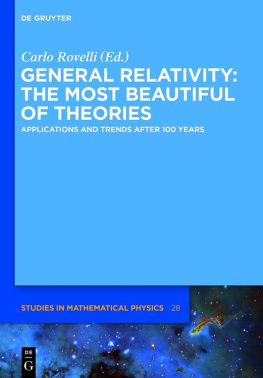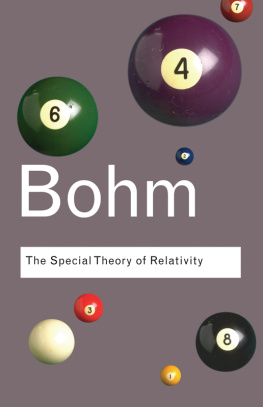For the present edition I have completely revised the Generalization of Gravitation Theory under the title Relativistic Theory of the Non-symmetric Field. For I have succeededin part in collaboration with my assistant B. Kaufmanin simplifying the derivations as well as the form of the field equations. The whole theory becomes thereby more transparent, without changing its content.
A. E.
SPACE AND TIME INPRE-RELATIVITY PHYSICS
The theory of relativity is intimately connected with the theory of space and time. I shall therefore begin with a brief investigation of the origin of our ideas of space and time, although in doing so I know that I introduce a controversial subject. The object of all science, whether natural science or psychology, is to co-ordinate our experiences and to bring them into a logical system. How are our customary ideas of space and time related to the character of our experiences?
The experiences of an individual appear to us arranged in a series of events; in this series the single events which we remember appear to be ordered according to the criterion of earlier and later, which cannot be analysed further. There exists, therefore, for the individual, an I-time, or subjective time. This in itself is not measurable. I can, indeed, associate numbers with the events, in such a way that a greater number is associated with the later event than with an earlier one; but the nature of this association may be quite arbitrary. This association I can define by means of a clock by comparing the order of events furnished by the clock with the order of the given series of events. We understand by a clock something which provides a series of events which can be counted, and which has other properties of which we shall speak later.
By the aid of language different individuals can, to a certain extent, compare their experiences. Then it turns out that certain sense perceptions of different individuals correspond to each other, while for other sense perceptions no such correspondence can be established.
We are accustomed to regard as real those sense perceptions which are common to different individuals, and which therefore are, in a measure, impersonal. The natural sciences, and in particular, the most fundamental of them, physics, deal with such sense perceptions. The conception of physical bodies, in particular of rigid bodies, is a relatively constant complex of such sense perceptions. A clock is also a body, or a system, in the same sense, with the additional property that the series of events which it counts is formed of elements all of which can be regarded as equal.
The only justification for our concepts and system of concepts is that they serve to represent the complex of our experiences; beyond this they have no legitimacy. I am convinced that the philosophers have had a harmful effect upon the progress of scientific thinking in removing certain fundamental concepts from the domain of empiricism, where they are under our control, to the intangible heights of the a priori. For even if it should appear that the universe of ideas cannot be deduced from experience by logical means, but is, in a sense, a creation of the human mind, without which no science is possible, nevertheless this universe of ideas is just as little independent of the nature of our experiences as clothes are of the form of the human body. This is particularly true of our concepts of time and space, which physicists have been obliged by the facts to bring down from the Olympus of the a priori in order to adjust them and put them in a serviceable condition.
We now come to our concepts and judgments of space. It is essential here also to pay strict attention to the relation of experience to our concepts. It seems to me that Poincar clearly recognized the truth in the account he gave in his book, LaScience et lHypothse. Among all the changes which we can perceive in a rigid body those are marked by their simplicity which can be made reversibly by a voluntary motion of the body; Poincar calls these changes in position. By means of simple changes in position we can bring two bodies into contact. The theorems of congruence, fundamental in geometry, have to do with the laws that govern such changes in position. For the concept of space the following seems essential. We can form new bodies by bringing bodies B, C,... up to body A; we say that we continue body A. We can continue body A in such a way that it comes into contact with any other body, X. The ensemble of all continuations of body A we can designate as the space of the body A. Then it is true that all bodies are in the space of the (arbitrarily chosen) body

